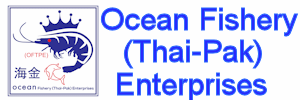Fishery and Aquaculture Country Profile for Eritrea
- aquatic species caught by country or area, by species items, by
FAO major fishing areas, and year, for all commercial, industrial,
recreational and subsistence purposes. The harvest from mariculture,
aquaculture and other kinds of fish farming is also included..
AQUASTAT is FAO's global information
system on water and agriculture developed by the Land and Water
Division. It collects, analyses and disseminates data and
information by country and by region. Its aim is to provide users
interested in global, regional and national analyses with
comprehensive information related to water resources and
agricultural water management across the world, with emphasis on
countries in Africa, Asia, Latin America and the Caribbean.
Information for Eritrea
Reliable figures on the extent and value of the
fishing industry in Eritrea are difficult to obtain. However, Eritrea’s long
coastline offers the opportunity for significant expansion of the fishing
industry from its current, largely artisanal, stage. Eritrea exports fish and
sea cucumbers from the Red Sea to markets in Europe and Asia, and there is hope
that the construction of a new, jet-capable airport in Massawa, as well as
rehabilitation of the port there, may support increased exports of high-value
seafood. In 2002, exports were about 14,000 tons, but the maximum stable yield
is thought to be nearly 80,000 tons. A fish processing plant was built in 1998
that now exports 150 tons of frozen fish every month to markets in Britain,
Germany, and the Netherlands. Tensions with Yemen over fishing rights in the Red
Sea flared up in 1995 and again in 2002, and Eritrea’s difficult relations with
other nations could hamper further development of the industry. Source:
Wikipedia
Ocean
Health Index Eritrea - The Ocean Health Index is a valuable tool for the
ongoing assessment of ocean health. By providing a means to advance
comprehensive ocean policy and compare future progress, the Index
can inform decisions about how to use or protect marine ecosystems.
The Index is a collaborative effort, made possible through
contributions from more than 65 scientists/ocean experts and
partnerships between organizations including the National Center for
Ecological Analysis and Synthesis, Sea Around Us, Conservation
International, National Geographic, and the New England Aquarium.
Information for Eritrea




